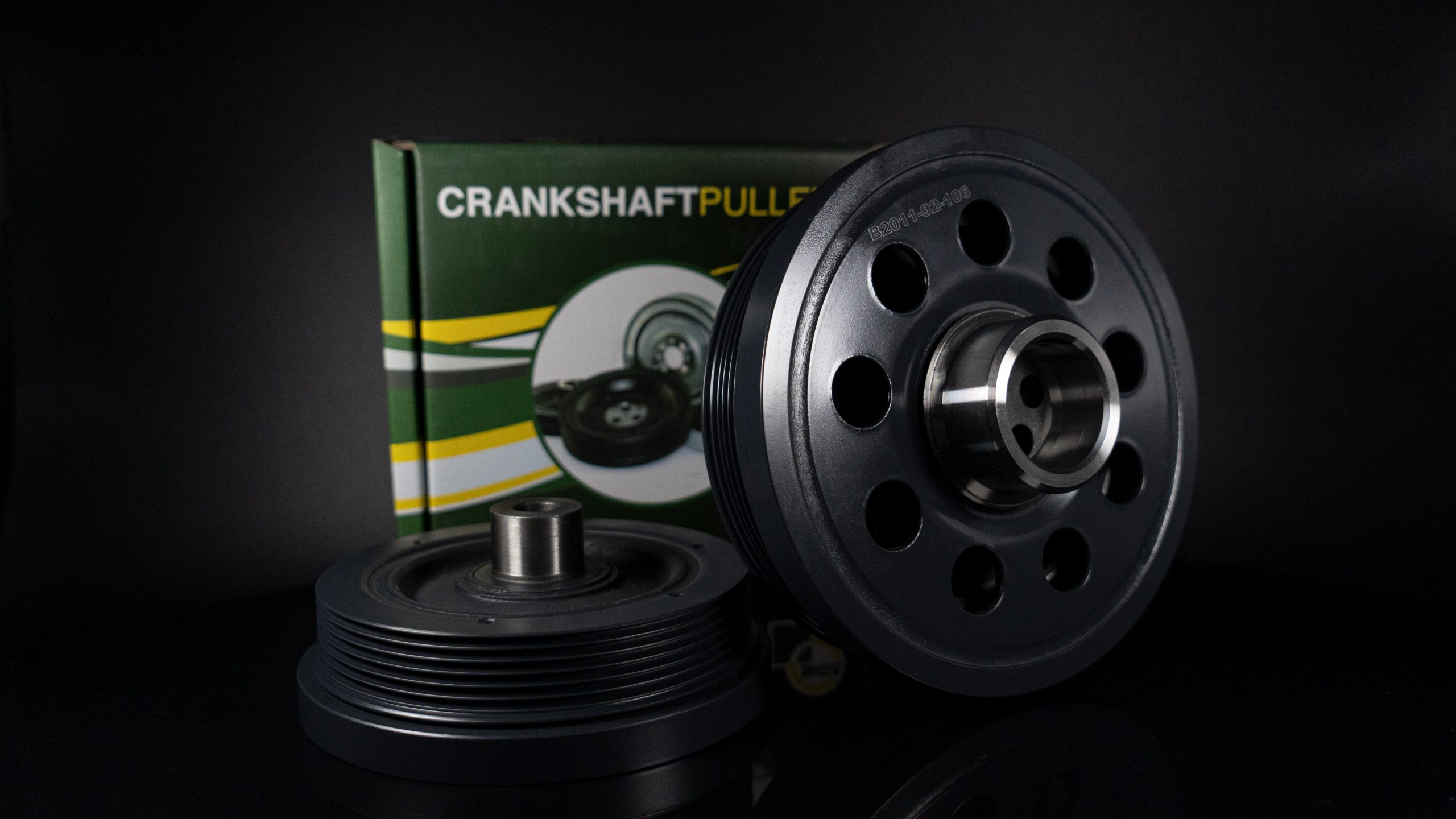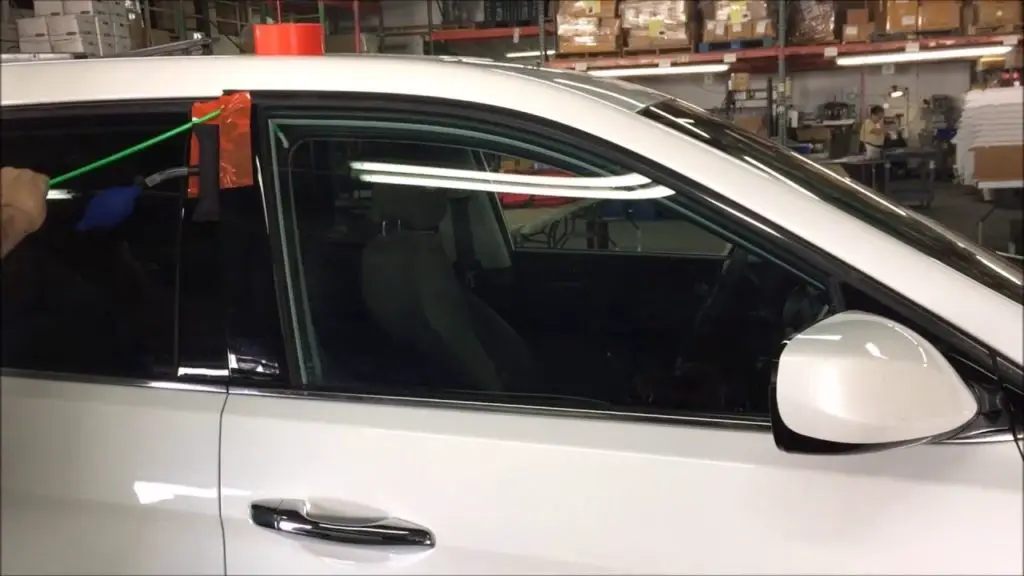A bad crankshaft pulley often produces a loud, rhythmic knocking or rattling noise from the engine bay. This sound usually worsens with increased RPM.
The crankshaft pulley, also known as the harmonic balancer, is a crucial component in your vehicle’s engine system. It helps to dampen vibrations and drive various engine accessories. When it fails, it can lead to significant engine noise and potential damage to other parts.
A malfunctioning crankshaft pulley not only affects engine performance but can also cause severe mechanical issues. Detecting the problem early can save you from costly repairs down the line. Regular maintenance and prompt attention to unusual sounds can ensure your vehicle remains in top condition.
Introduction To Crankshaft Pulley Noises
The crankshaft pulley helps drive the engine’s belts. These belts power essential components. The pulley ensures smooth engine operation. If the pulley fails, it can make strange noises. These noises can be loud and annoying. Early detection is crucial to prevent damage. Regular checks can help identify issues.
The crankshaft pulley connects to the engine’s crankshaft. It helps turn belts that power parts like the alternator. Without it, the engine can’t run smoothly. It also helps reduce vibrations. A bad pulley can cause engine misfires and other problems. Maintaining the pulley is essential for engine health.
- Loud rattling or squealing noises from the engine.
- Visible cracks or wear on the pulley.
- Engine belts slipping or breaking often.
- Increased engine vibrations.
- Check engine light turning on.
Characteristic Sounds Of A Failing Crankshaft Pulley
A bad crankshaft pulley often makes squealing or squeaking sounds. These noises are loud and high-pitched. The sounds usually come when the engine starts or during acceleration. A worn-out belt can cause this noise as well.
Another common sound is knocking or clunking. These sounds are low-pitched and rhythmic. They occur because the pulley is loose or damaged. The noise may become louder when idling or driving at low speeds. Always check the pulley if you hear these sounds.
Diagnosing Crankshaft Pulley Noises
Check the pulley for visible cracks or wear and tear. Look for misalignment in the pulley. A wobbly pulley often indicates a bad one. Inspect the belt tension. A bad pulley can cause the belt to become loose. Rust and corrosion are other signs to watch for. Look at the surrounding area for any debris. Ensure the pulley spins smoothly without noise.
Listen for a squealing noise when the engine is running. A bad pulley often makes a chirping sound. Pay attention to any grinding noises. These can indicate worn bearings. Clicking sounds might also be a sign of a bad pulley. A knocking noise is another indicator. Turn off the engine and check for loose parts. These sounds usually get worse with higher RPMs.
The Impact Of A Worn Crankshaft Pulley
A worn crankshaft pulley can cause serious damage to the serpentine belt. The belt might slip or break. This can lead to engine overheating. It may also affect power steering. Battery charging can also suffer. The alternator may not work properly. A broken belt can leave you stranded. Fixing the pulley can prevent these issues.
A bad crankshaft pulley can affect engine performance. It can cause strange noises. The engine may vibrate more than usual. Fuel efficiency can drop. Engine parts may wear out faster. Replacing a worn pulley can improve engine smoothness. It also helps the engine run better. Regular checks can spot problems early.
Comparing Sounds: Bad Pulley Vs. Other Engine Noises
A bad crankshaft pulley makes a loud, rhythmic clunking noise. This sound is different from the belt tensioner noise. A failing belt tensioner often creates a high-pitched squealing sound. The squealing is continuous and sharp. The clunking from a crankshaft pulley is more irregular.
The alternator can also create noise. A bad alternator might produce a whining or grinding sound. This is different from the crankshaft pulley. The crankshaft pulley clunks and thuds. Alternator noises are often higher-pitched and constant. Crankshaft pulley sounds are lower and more rhythmic.

Credit: www.carparts.com
When To Seek Professional Diagnosis
A bad crankshaft pulley often produces a noticeable knocking or rattling noise from the engine bay. Seek professional diagnosis promptly to prevent further damage and ensure vehicle safety.
Limitations Of Diy Approaches
Many car problems need professional help. DIY approaches often miss critical issues. A bad crankshaft pulley can be tricky to diagnose. Inexperience can lead to misdiagnosis. Incorrect fixes can cause more damage. Special tools and knowledge are essential. Mechanics have the right tools. They know what to look for. Trusting a professional saves time and money.
Benefits Of Expert Assessment
Expert assessment ensures accurate diagnosis. Professionals have years of experience. They can spot hidden issues. Their trained eye catches things DIYers miss. Proper tools make a big difference. Mechanics use advanced diagnostic tools. They guarantee the right fix. This means fewer future problems. It’s safer and more reliable. Your car runs smoothly with expert help.
Steps To Replace A Faulty Crankshaft Pulley
You need a wrench set and a pulley puller. A new crankshaft pulley and safety gloves are also required. A torque wrench ensures the pulley is tightened correctly. A socket set is useful for various bolts.
First, disconnect the car battery to avoid any shock. Next, loosen the serpentine belt using a wrench. Remove the old pulley using the pulley puller. Clean the crankshaft area to remove dirt and debris.
Then, install the new pulley by aligning it with the crankshaft. Tighten the bolts using a torque wrench. Finally, reconnect the serpentine belt and reconnect the car battery.
Preventive Maintenance To Avoid Pulley Problems
Inspect your crankshaft pulley often. Look for cracks, wear, and damage. A worn pulley can cause engine trouble. Servicing your car regularly helps find issues early. Mechanics check pulleys during service.
Keep your engine clean. Dirt can damage the pulley. Use quality parts for repairs. Cheap parts wear out fast. Check belts for tightness. Loose belts can harm the pulley. Regular checks and servicing save money. Avoid big repairs later.
Listen for strange noises from your engine. A bad pulley makes clanking sounds. Feel for vibrations while driving. Vibrations mean pulley problems. Look for the engine warning light. This light shows when there’s an issue.
Check for oil leaks. Leaks near the pulley can be a sign. Notice if your engine feels rough. A bad pulley can cause this. Address warning signs early. It prevents bigger problems later.
Conclusion: Staying Attuned To Your Vehicle’s Needs
Listening to unusual engine noises can help identify a bad crankshaft pulley. Early detection ensures timely maintenance and smooth vehicle performance.
The Importance Of Addressing Pulley Noises Promptly
Strange noises from your crankshaft pulley need quick attention. Ignoring these noises can lead to bigger problems. Addressing these sounds promptly helps avoid costly repairs later. Regular checks can ensure your vehicle stays in good condition. Detecting problems early can save you time and money.
Ensuring Vehicle Longevity And Performance
Maintaining your vehicle is crucial for its long life. Proper care ensures your car runs smoothly. Ignoring minor issues can lead to major breakdowns. Regular maintenance keeps your car performing well. Always listen for unusual sounds. Fixing problems early helps in avoiding big repairs. This ensures safety and reliability on the road.

Credit: www.youtube.com

Credit: news.bgautomotive.co.uk
Frequently Asked Questions
How Do I Know If My Crankshaft Pulley Is Bad?
Listen for unusual noises, like grinding or squeaking. Check for visible wear, cracks, or misalignment. Notice if the engine vibrates excessively. Monitor for poor engine performance. Inspect the pulley for signs of rust or corrosion.
What Are The Symptoms Of A Bad Pulley?
A bad pulley symptoms include squealing noises, wobbling, belt slippage, and engine overheating. Frequent belt wear also indicates issues.
What Does A Harmonic Balancer Sound Like When It’s Going Bad?
A failing harmonic balancer often produces a noticeable knocking, rattling, or squeaking sound from the engine area.
Can You Drive A Car With A Bad Crankshaft Pulley?
Driving with a bad crankshaft pulley is unsafe. It can lead to engine damage or failure. Replace it immediately.
Conclusion
Identifying a bad crankshaft pulley sound is crucial for vehicle health. Listen for rattling or knocking noises. Regular maintenance can prevent severe engine damage. Addressing issues early ensures smoother rides and longer engine life. Stay alert and consult a mechanic if you notice unusual sounds.

